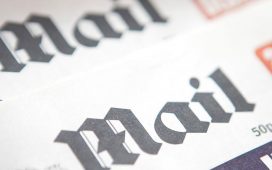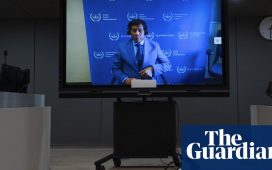The Kenya Human Rights Commission has called on King Charles to offer an “unequivocal public apology” for colonial abuses, during his visit to the country this week.
“We call upon the king, on behalf of the British government, to issue an unconditional and unequivocal public apology (as opposed to the very cautious, self-preserving and protective statements of regrets) for the brutal and inhuman treatment inflicted on Kenyan citizens,” the KHRC said.
During “the emergency” between 1952 and 1960 – at the height of Kenya’s fight for independence – British soldiers forced about 1.5 million Kenyans, who were suspected to be part of the Mau Mau anti-colonial uprising, into concentration camps, where they were subjected to torture, rape and dehumanising treatment.
The king is expected to “acknowledge the more painful aspects of the UK and Kenya’s shared history” during his four-day visit to the east African country from 31 October to 3 November.
In a statement this month, Buckingham Palace said the king would “take time during the visit to deepen his understanding of the wrongs suffered [during the emergency] by the people of Kenya”.
The rights commission said there was “no indication” that the king intended to offer a “full and unconditional apology” for colonial brutality in Kenya.
The mistreatment of detainees was described as “distressingly reminiscent of conditions in Nazi Germany or communist Russia”, in a letter by the British colony’s attorney general, Eric Griffith-Jones, to a British governor in 1957. Griffith-Jones later drafted legislation allowing beatings – on condition that they were kept secret.
The UK reached an out-of-court settlement of £20m in 2013, with 5,228 Kenyans involved in a class-action lawsuit over the abuses committed during the emergency. The payout, accompanied by a “statement of regret” from the British government, followed an 11-year campaign and legal battle against the UK, initially filed by five elderly Kenyans.
The case revealed, among other things, that the British had destroyed or concealed official records of the colonial authorities’ brutal crackdowns, while documents found during the discovery, historians said, put the UK government in an “embarrassing [and] scandalous” position.
As findings regarding the extent of colonial atrocities have come to light within the past decade, and similar reckonings have swept the Commonwealth, calls for acknowledgment and reparations for these historical wrongs have grown.
Charles’s approach, during his first visit as king to a Commonwealth member country, will signal how he plans to tackle similar calls to acknowledge and apologise for colonial atrocities.











